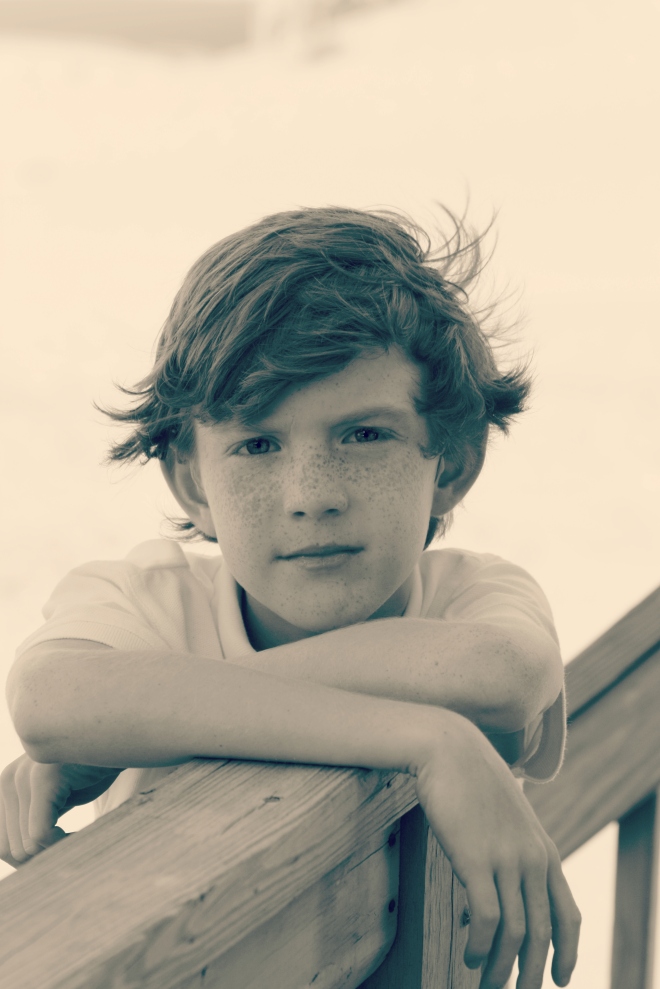By writing this, I am not trying to be critical of other parents and the decisions they make in this situation. I also want to make it known that I understand that every child is different. And every situation is different. And that what may be the best for one child is not necessarily so for another.
And one other little disclaimer…what follows is my opinion based on my experience, of which I don’t have a lot. 🙂 I have only four years of experience as a mother of a child with a disability. And we have only just entered the world of education and school and homework and projects and grades and all that comes with it. So I reserve the right to change my opinion as my life becomes more rich with experience. I don’t think I will. But I never like to say never…
Here goes…
Henry is a very smart 5 year old little boy. He learns quickly. He is outgoing, and confident, and happy. And Henry is hard of hearing. I am well aware of the fact that that puts him at a disadvantage. I don’t understand it completely. I hear. I don’t know what it’s like to not hear well. I don’t fully understand what he has to do to keep up with us hearing people. But I do know that it is a significant effort. And I do know that he will have to work pretty darned hard to do some of the things that most of us do without even thinking.
When I originally wrote this, I stated that teachers in our county are able to grade children with an iep on an adjusted grading scale. What I have learned since is that children with ieps may have an adjusted curriculum. Yes, the two are different, but in the end, they have the same effect. And they both lead me to the same conclusion.
To be honest, I don’t even know what an adjusted curriculum is. What is the reason for, and what are the consequences of an adjusted curriculum? I don’t know. I don’t know which children qualify for this “adjusted curriculum.” Does it have to be written into the iep? I don’t know. Are all children with ieps considered for this? I don’t know. (And frankly, I wonder how it is that I haven’t even heard of this before now.)
I don’t know enough about it, clearly. But it really got me thinking about Henry’s education, his life, his goals, and through what lens I want him to be viewed. Yes, he has a disability, but no one should let that label cloud their view of him. It also got me thinking about people, and how we treat each other, and how something as wonderful as compassion can evolve into something unintended. Something that sends an unintended message to a little boy.
I don’t know when we began trying to make everything fair. Life isn’t fair. Sometimes it is terribly unfair. Is it fair that Henry doesn’t hear very well? No. It’s not fair. That is his challenge. But he has gifts, too. We all have gifts. And we all have challenges, granted that some are much, much greater than others. The reality is that people are different. Kids are different. Some kids are athletes. Some kids are leaders. Some kids are social butterflies. Some kids are smart. Some kids are creative and artistic. Some kids will change the world with their kindness. I want my kids to discover their own gifts, and understand that those gifts, along with the challenges they own, are what make them who they are. I want them to learn to live with and overcome their challenges, and I want them to use their gifts for good. These are the ideas I believe in.
But then we do things as adults to try to make all children the same…make everything fair. Why do we try to even everything out? Do we make the world a better place? Do we make things fair by doing so? And where is the fairness for those kids that really excel as athletes or scholars or artists? Aren’t we taking from them at the same time we are giving to others?
What message are we sending to this little boy of mine? What message do we send to his siblings, and his peers? I mean really, really think about this… He has a disability. If his curriculum is changed based on the fact that he has a disability, what does he learn from that? Are we telling him he’ll never be on the same level, no matter how hard he tries?
How would I explain to my son that he isn’t quite good enough, smart enough, fast enough, strong enough to do this on his own, just the way he is? I have spent the last four years since his diagnosis telling him that he IS enough, just the way he is. And I believe that. And if he IS enough, just as he is, then why is there any reason to even things out? I wonder what unintended consequences this all has. I wonder what he learns, and what other children learn from situations like this.
I don’t want his successes muddied. When he succeeds, I want him to be proud of himself, and know that his accomplishments are all his own. He will know how hard he worked for something, and he will appreciate it.
And Henry is going to have to work hard. Harder than most other children. Yes.
But he will. And he will know that he did it.
He did it just the way he is.





